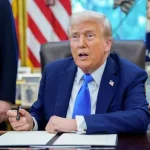QUICK FACTS
Full name: Republic of Moldova
Capital city: Chisinau
Population: 3,547,539 (1 January 2018)
GDP in Current Prices: USD $9.56 billion (2017)
GDP real growth: 4.5% (2017)
Area: 32,870 km² (including Transnistria)
Government: Unitary parliamentary constitutional republic
President: Igor Dodon
Prime Minister:Maia Sandu
Currency: Moldovan Leu (MDL)
HDI: 112th (2018)
Ease of doing business index: 47th (2018/19)
Time Zone: GMT + 2
Dialling code: 373
The Republic of Moldova is a landlocked country in Eastern Europe, bordered by Romania to the west and Ukraine to the north, east and south. A former member of the Soviet Union, Moldova gained independence from the USSR in 1991 and was admitted to the United Nations on 2 March 1992. Although the country is landlocked, it is close to the Black Sea which helps to keep the climate moderately cool. The summers tend to be warm with an average high temperature of 22°C between May and September, while the winters tend to be dry and cold, with temperatures averaging -3°C in January.
The country’s terrain is mostly hilly rather than mountainous, and is served by two main rivers. The Prut river forms the border with Romania, running for 695 kilometres until flowing into the Danube. The Royal Forest Natural Reservation, an area of 6,039 hectares described as a national treasure, was established in 1993 alongside the Prut river in Glodeni in the northwest of the country to protect the abundant flora and fauna of the floodplain forests. In the east of the country, the Dniester river starts in Ukraine and flows north to south through Moldova for 657 kilometres before draining into the Black Sea back in Ukraine.
Moldova is one of the poorest countries in Europe and has had to contend with several crises both internally and externally since gaining independence. The population is just over 3.5 million, 57% of whom are classified as rural residents and many of these still live below the poverty line. However, the last few years have seen a return to economic growth as Moldova seeks closer ties with the European Union.
History
Moldova’s history is linked closely to that of Romania. Whilst Moldovan is named as the official national language of Moldova in the country’s Constitution, the 1991 Declaration of Independence states that Romanian is the official language. The Moldovan parliament later declared that Romanian and Moldovan were designations of the same language and in December 2013, the Constitutional Court of Moldova ruled that the Declaration of Independence takes precedence over the Constitution and that the state language is therefore Romanian. According to the 2014 Census, 79% of the population use Romanian as their first language, while as many as 14.5% still use Russian as their first language.
The region between the Eastern Carpathian Mountains and the Dniester river had largely been home to various nomadic peoples until the Mongols invaded in 1241. But by the 1340s, the Mongol ‘Golden Horde’ was beginning to disintegrate as Poland and Hungary both started to expand their territories. After a Hungarian army defeated the Mongols in 1345, new forts were built east of the Carpathians and a Vlach ruler named Dragos took possession of the lands along the Moldova river, establishing Moldavia as a Hungarian territory. But around 1359, the Vlachs in Moldavia rebelled against the Hungarian King Louis I and another Vlach leader, Bogdan, secured independence for the Principality of Moldavia.
Moldavia remained a principality until 1859, when it united with Wallachia to create the modern Romania. But by this time, it had lost its eastern half to the Russian Empire, who renamed the area Bessarabia. In 1917, following the Russian Revolution, the area reconstituted itself as the Moldavian Democratic Republic and in 1918 entered a union with the Kingdom of Romania. The union was recognised by the principal Allied Powers in the 1920 Treaty of Paris, but was never ratified due to Japan withdrawing its support. Russia still considered Bessarabia as Russian territory under illegal occupation and in 1940 the Soviet Union issued an ultimatum to Romania to withdraw or face a full-scale invasion. Romania conceded and this led to Bessarabia being included within the newly created Moldavian Soviet Socialist Republic.
During the 1980s, whilst the USSR was entering its ‘glasnost’ period, Moldova along with several other Soviet republics started moving towards independence, and in 1989 the nationalist Popular Front of Moldova (PFM) was formed in opposition to the Communist Party, organizing a mass demonstration in Chisinau in August that led to major riots. The first democratic elections for the local parliament were held early 1990 and, on 27 August 1991, Moldova declared its independence. Following the dissolution of the Soviet Union on 26 December 1991, Moldova declared itself a neutral state and, on 2 March 1992, gained formal recognition from the United Nations.
However, the territory east of the Dniester river – officially known as Transnistria – which has a high percentage of ethnic Russians (34%) and Ukrainians (27%), proclaimed their own independence in August 1990 with their capital in Tirasol. Clashes between Transnistrian forces and Moldovan police during the winter of 1991/92 escalated into a full military conflict on 2 March 1992 lasting more than four months until a ceasefire was arranged. To this day, the Transnistria situation has been unresolved, as the majority of its population favor independence from Moldova or annexation by Russia rather than reunification with Moldova. However, none of the UN’s full member states recognize Transnistria as a sovereign state.
Relations with Europe
Moldova became a member of NATO’s Partnership for Peace program in 1994 and was admitted to the Council of Europe on 29 June 1995. In 2005, Moldova worked with the EU to improve collaboration between its neighbouring countries Romania and Ukraine. The European Union Border Assistance Mission (EUBAM) was established to offer support in Moldova’s and Ukraine’s fight against cross-border crime and to bring their border and customs procedures broadly in line with EU standards.
With support from Romania, Moldova signed an association agreement with the EU on 29 November 2013, dedicated to the European Union’s ‘Eastern Partnership’ with ex-Soviet countries. This was followed by Moldova signing an Association Agreement with the EU in Brussels on 27 June 2014. The then prime minister Iurie Leanca stated at the time that they were “doing everything possible for Moldova to become a full member of the European Union when Romania will hold the presidency of the EU in 2019” and this aim was reconfirmed by the parliamentary speaker in July 2017.
In 2014, Moldova was one of three countries (with Georgia and Ukraine) to enter into a Deep and Comprehensive Free Trade Areas (DCFTA) agreement which allows access to the European Single Market in selected market sectors and grants EU investors in those sectors the same regulatory environment in the associated country as in the EU. The agreement with Moldova was ratified and officially came into force in July 2016.
Politics
Moldova is a unitary parliamentary republic with a president as head of state and a prime minister as head of government. The Prime Minister is formally appointed by the President and exercises executive power along with the cabinet subject to parliamentary support. The central legislative body is the unicameral Moldovan Parliament which has 101 members who are elected by popular vote for a four-year term. The last parliamentary election in February 2019 failed to produce an outright winner and attempts to form a coalition government initially broke down, causing a constitutional crisis during June. Maia Sandu was elected Prime Minister on 8 June 2019, but it was not until 15 June 2019 that her appointment and that of the Sandu Cabinet was formally ratified by the Constitutional Court.
Between 2001-2015, the president was voted for by the parliamentary members, but this was changed constitutionally in 2016 to a two-round direct election by the citizens. The elections were won by Igor Dodon, the leader of the Party of Socialists of the Republic of Moldova (PSRM), and he was sworn in as the 5th President of Moldova on 23 December 2016 after resigning his leadership of the PSRM.
Moldova is divided into 32 districts, three municipalities and two autonomous regions, including Transnistria which remains a disputed territory and not controlled by the central government. There are 66 cities or towns, plus 916 communes and 700 villages. The largest city is the capital city, Chisinau, which has an urban population of 690,000 (as of 1 January 2018).
Economy
Following its independence from the Soviet Union, Moldova experienced a serious economic crisis as its industrial and agricultural outputs fell and the economy fell into decline. With help from the World Bank and the IMF, the economy, backed by sound macroeconomic and financial policies and structural reforms, started to recover from 2000. By 2017, the service sector had grown to over 60% of the country’s GDP, with manufacturing accounting for 23% and agriculture, forestry and fishing falling to less than 12% share of GDP compared with 28% in 1995.
In November 2014, Moldova’s central bank uncovered a large-scale fraud that saw $1 billion disappear from three banks, leaving deep public discontent and a financial hole in the public finances equivalent to 12% of the country’s GDP. It was not the first time that Moldovan banks had been involved in Russian money laundering schemes and the political fall-out was far reaching as it brought down several prominent politicians and businessmen.
The new government installed in January 2016 under the leadership of Pavel Filip has managed to restore political stability and the economy has returned to positive growth since 2016. Nevertheless, Moldova’s GDP per capita is still the lowest in Europe as is its Human Development Index (HDI).
Historically, Moldova has been one of the most productive agricultural regions in southeast Europe, benefitting from its rich soils and temperate continental climate. As well as vegetables, fruits and grapes, the country has a well-established wine industry with an estimated total of 148,000 hectares of vineyards exporting Moldovan wines and cognac to 28 countries including Russia, Poland and the USA. In 2017, Moldova was the 20th largest wine producing wine country in the world according to the International Organisation of Vine and Wine (OIV).
With few natural energy resources of its own, Moldova still has to depend on imports from Russia and Ukraine for most of its energy sources. It has seen energy prices rise dramatically over the past decade and is actively pursuing renewable energy options to try to meet its target of providing 20% of its energy needs from renewable energy by 2020.
Tourism
Moldova is one of the least visited countries in Europe. The Bureau of National Statistics reported that 3.8 million foreign visitors entered Moldova during 2017. Of these, 55% had come from Romania and 27% from Ukraine, with the Russian Federation the next highest source of visitors (8%). However, only 145,000 foreign visitors stayed at least one night in tourist accommodation in 2017, although this compares favourably with 94,000 in 2015 and 70,000 in 2007.
Moldova only has the one international airport – Chisinau International Airport (IATA code KIV) – located 13 kilometres south east of Chisinau. Only 17.3% of all foreign tourists arrived by air, the majority of foreign arrivals coming by road (81.2%) with 1.5% arriving by train. The main attractions for foreign visitors are the country’s natural landscape and its history, while the country has also been promoting wine tours to its many vineyards and cellars.
In a bid to encourage more foreign tourists, Moldova agreed visa-free arrangements for the USA, Canada, Japan and Switzerland from 2007 and for Turkey from 2012. As a result of signing its Association Agreement with the EU, Moldovan citizens with biometric passports were granted visa-free access to EU countries from April 2014.
Citizenship by Investment
In November 2018, Moldova officially launched its Moldova Citizenship by Investment (MCBI) programme. One of the attractions of the MCBI programme is that it provides visa-free access to 122 countries including Russia, Turkey and the Schengen countries within Europe. It is also one of the cheapest CBI programmes in the world currently available and it does not have any residency requirements.
The government has put a cap of 2,000 applications per annum and it is hoping to raise around €1.3 billion over the next five years.
To qualify for citizenship, applicants must make a non-refundable economic contribution to Moldova’s Public Investment Fund for Sustainable Development as follows:
- €100,000 for a single applicant
- €115,000 for a couple
- €145,000 for a family of four
- €155,000 for a family of five or more.
The scheme follows a thorough four-tier due diligence system, costing €6,000 for the main applicant and €5,000 for spouses, dependent parents and dependent children up to the age of 29.
In addition, all applicants are required to pay government fees as follows:
- €5,000 for the main applicant
- €2,500 for a spouse
- €1,000 for each child aged 0-15 years
- €2,500 for a dependent child aged 16-29 years
- €5,000 for a dependent parent of the main applicant or of the spouse who is aged 55+.
There is also a post-approval government service provider fee of €35,000 for each application.
Assuming no problems with the due diligence process, a certificate of naturalization can be completed within three months from the date of the full application.
Once obtained, citizenship is also transferrable to future generations without restrictions. Dual citizenship is permitted.
Moldova offers foreign companies and individuals an attractive and stable climate in which to do business, and its MCBI programme provides one of the biggest and most exciting opportunities for foreign direct investment. For anyone who is looking specifically to obtain EU citizenship, Moldova is definitely one to watch.
NOTE: As of 18th July 2019, the Moldova CBI programme has been temporarily suspended until further notice pending a review.




